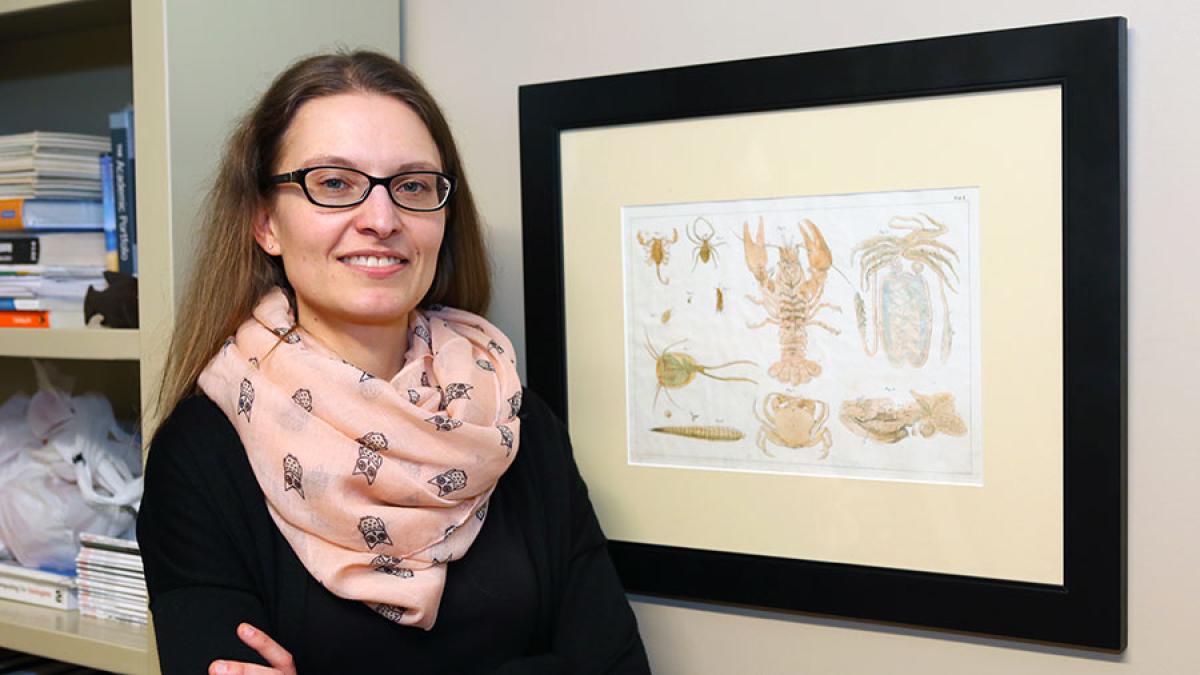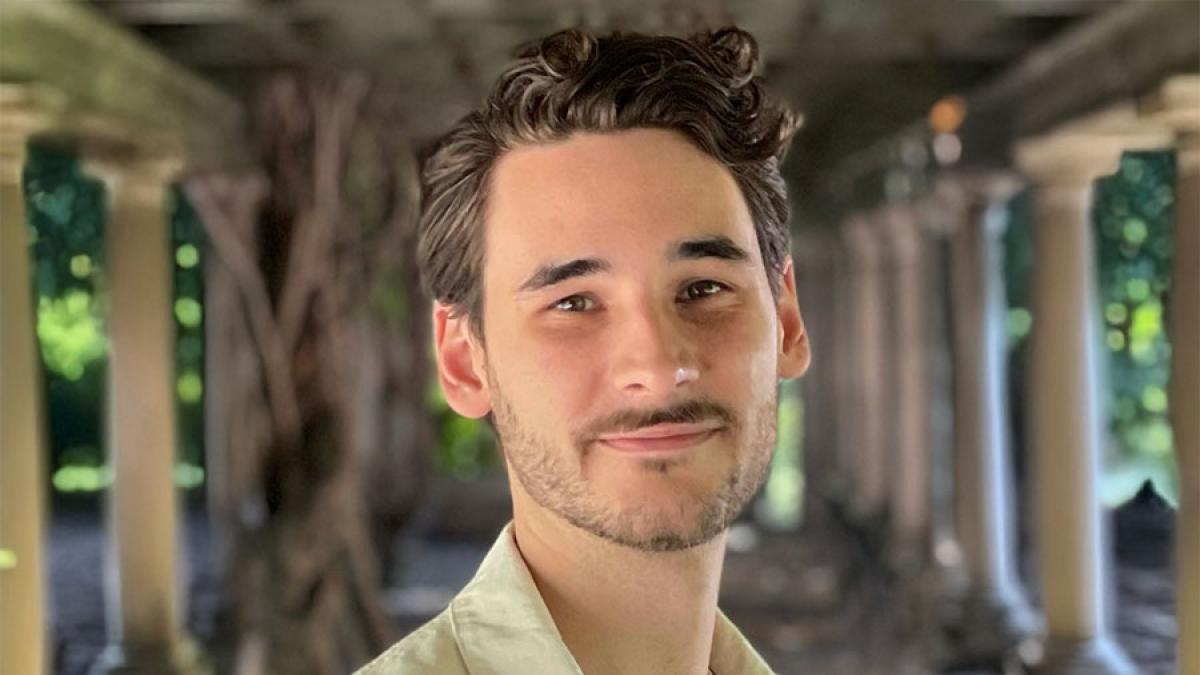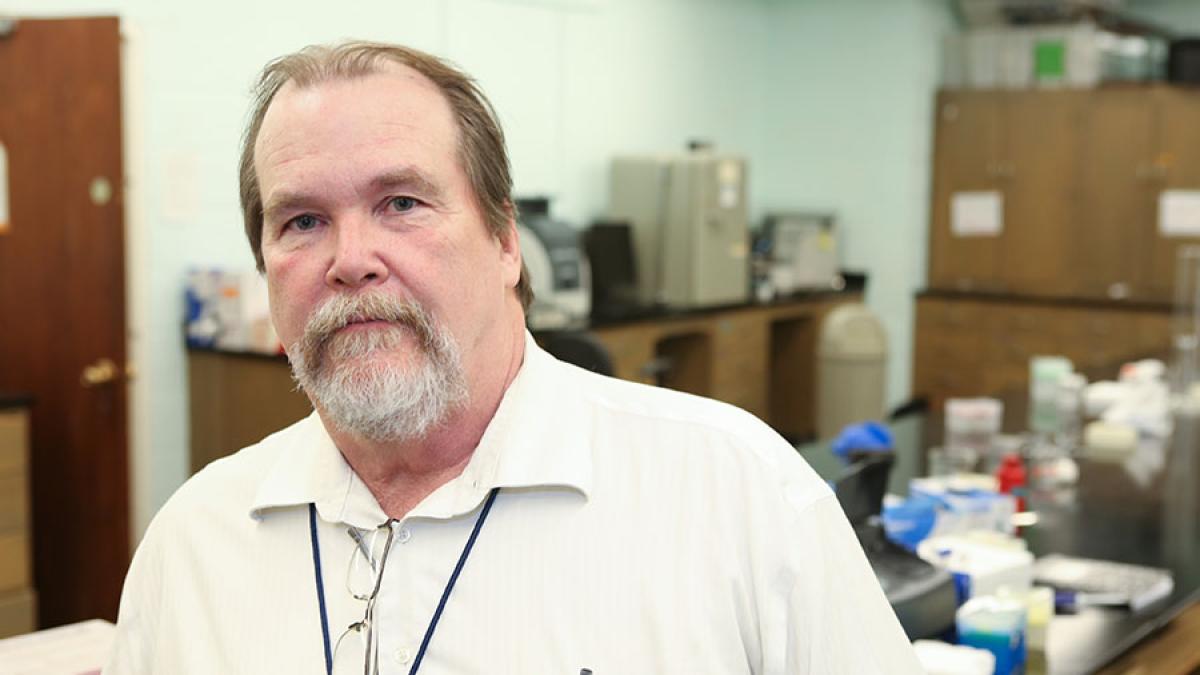Professor Crispo’s research focuses on the interface of molecular ecology and ecological genetics.
Biology, BS
Explore your passion for the biological sciences with a BS in biology from Pace University. Gain hands-on experience in cutting-edge research labs, receive mentorship from renowned faculty, and apply your skills in real-world settings with leading organizations across New York. These experiences will prepare you for graduate research or a successful career in the medical, biotechnological, and environmental fields—and beyond.

New York City
Westchester
120
Fall, Spring
Yes
Yes
Cutting Edge Scientific Training that Accelerates Your Career
Pace University’s bachelor’s in biology provides the technical training, academic flexibility, and interdisciplinary skill set needed to excel in your chosen career. With individualized advising, including a dedicated pre-med advisory committee and a pre-health professions advisor, you’ll receive guidance in selecting courses from a wide range of electives—spanning botany, toxicology, neuroscience, and microbial ecology.
Unlike the bachelor of arts in biology, the bachelor of science in biology focuses more on scientific coursework and hands-on research opportunities. Conduct independent laboratory research, collaborate with faculty on published studies, and connect with local organizations offering internships and research opportunities. Work in cutting-edge laboratories, including a state-of-the-art DNA sequencing lab and the Haskins Laboratory, a research center internationally recognized for its groundbreaking work on parasitic diseases.
With New York City and the Hudson Valley as your backyard, you’ll have the opportunity to intern at major organizations and present your research at national and international conferences. Get involved with student organizations including Beta Beta Beta, the national biology honor society, and build connections with fellow researchers, successful alumni, and industry leaders. With faculty mentorship and a strong professional network, you’ll be prepared for careers in educational, medical, veterinary, and pharmaceutical industry labs, as well as in government and nonprofit institutions.
Curriculum
You’ll immerse yourself in biology, chemistry, calculus I, and physics courses. Additionally, you’ll choose five electives from the 20+ we offer. These range from botany to toxicology, and from neuroscience to microbial ecology, and include a travel course to Costa Rica. The electives reflect the expertise of our award-winning faculty who conduct one-on-one research with our students and take them to conferences where many of our students have won national awards.
Take Courses Like…
Careers
Graduates are well prepared to continue their studies in fields such as medicine, dentistry, physical therapy or veterinary medicine at a professional school, or work in related fields such as medical, biotechnological, and environmental companies. Many of our graduates go on to careers as scientists, medical doctors, nurses, physician assistants, pharmacists, physical therapists, optometrists, dentists, veterinarians, and teachers.
As a Pace student, you’ll have the opportunity to connect with our robust career services team to develop a career plan that best fits your goals.
Our graduates are prepared for jobs like:
- Entry-level laboratory or field research in academic, government or pharmaceutical research laboratories, or research for private, nonprofit organizations
- Entry-level healthcare or public health work in hospitals and other medical facilities, government public health agencies
- Entry-level environmental conservation work for government agencies (EPA, DEC, national parks) or private, nonprofit organizations (zoos, aquariums)
- Entry-level forensic science work (local, state, or federal agencies)
Student Quote

—Kourtney Kelly ’21
Where Pace Graduates are Employed
- Teva Pharmaceuticals
- Island Musculoskeletal Care
- Allied Physicians Group
- US Army
- Weil-Cornell Medicine
- Memorial Sloan Kettering Cancer Center
- Novartis
- L’Oreal USA
- New York City Police Department
- New York Methodist Hospital
- Mount Sinai
- Relief Mental Health
Featured Faculty
Professor Boerma’s recent research focuses on learning how bats recover from aerial stumbles and how their landing maneuvers evolve in concert with the physical properties of their roosts.
Professor Eaton’s research focuses on how climate change-induced extreme events negatively influence the soil ecosystems in Costa Rica.
Admission and Financial Aid
Ready to take charge of your future? Pace is with you every step of the way, providing a world class education and the skills your industry will be looking for far into the future.
-
- November 1: Early Decision
- November 15: Early Action I
- December 1: Early Action II
- February 15: Regular Decision
Explore required documents and admission decision dates for first-year, transfer, and international students.
-
Ready to apply? Begin your application process.
-
Understanding the value of a degree is essential, especially in terms of return on investment (ROI). According to The Georgetown University Center on Education and the Workforce, Pace University is in the top 6% of U.S. colleges that provide the best return on tuition investment.
For the 2025–2026 academic year, full-time undergraduate tuition is $52,924. However, many students pay significantly less due to our generous merit scholarships, which offer up to $33,000 annually, as well as need-based scholarships, grants, on-campus employment opportunities, and loans. Pace is more affordable than you think. Financial assistance can come from many places, including scholarships, grants, on-campus employment, and loans.
Merit Scholarship Estimator
Estimate your merit scholarship eligibility based on your academic achievements to see how much merit aid you may receive.
Net Price Calculator
Use our Net Price Calculator to estimate your annual education costs and financial aid package.
-
Connect with our dedicated admission counselors who are here to support you every step of the way. Schedule a one-on-one appointment to discuss your goals, application questions, and any other information you need to make an informed decision about your future at Pace.
Did You Know?
Contact Us
Admission Contact
Office of Undergraduate Admission
New York City: (212) 346-1323
Westchester: (914) 773-3746
Email: undergradadmission@pace.edu
Departmental Contact
Zafir Buraei, PhD
Email: zburaei@pace.edu


